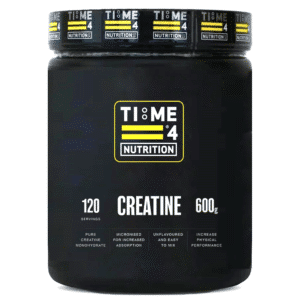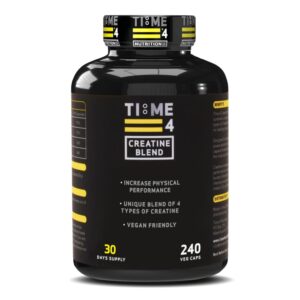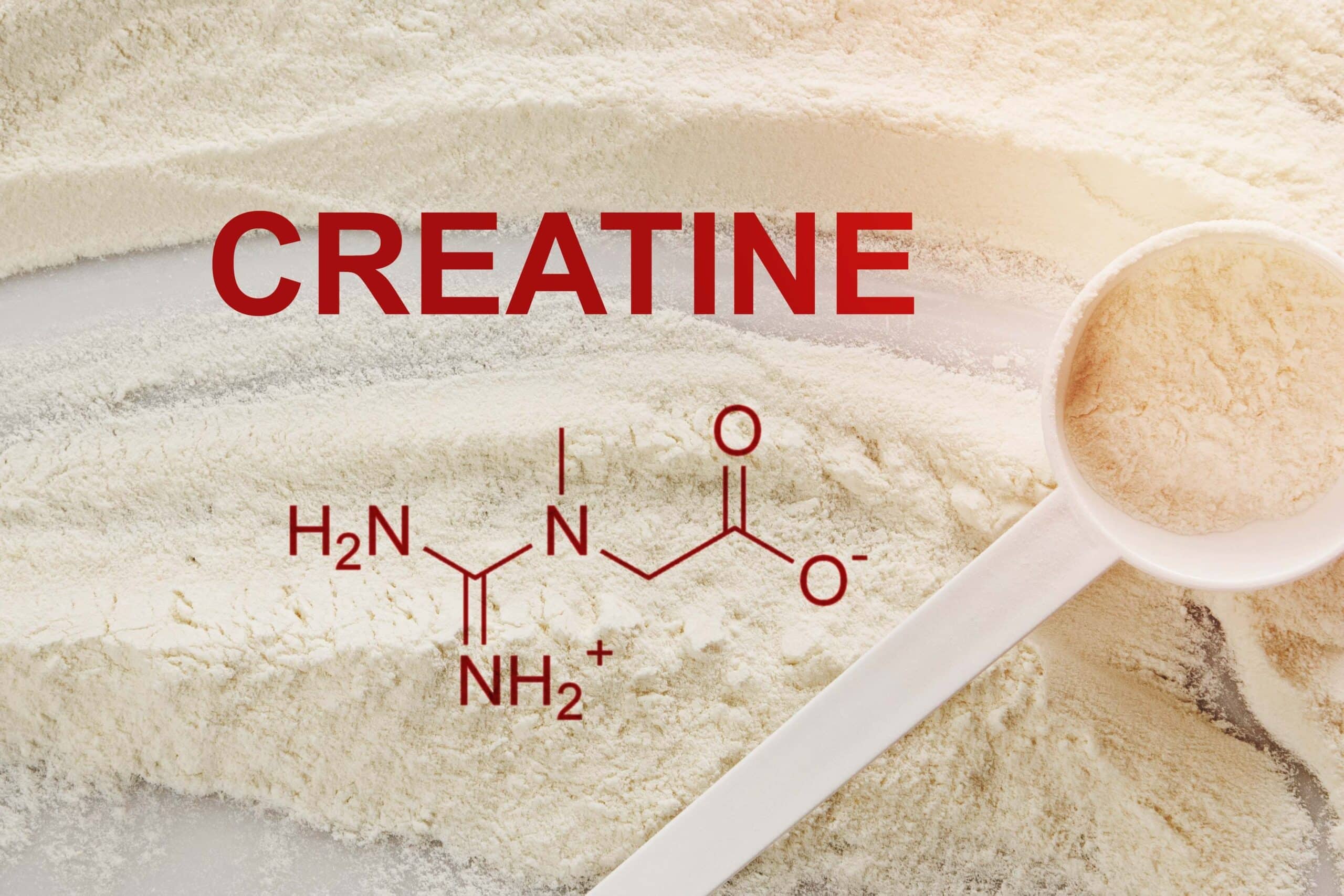WHAT IS CREATINE?
What Is Creatine?
What is Creatine? Learn About One of the Most Effective Supplements Available
(Click on Nutritional Terms and Reference Numbers in Blue for More Info)
Creatine first became a popular supplement in the early 1990s and since then billions of doses have been consumed. For example, Americans consume over four million kilograms a year of creatine with worldwide use much higher (1). The prevalence of creatine use among athletes and military personnel has generally been reported to be about 15–40%, with use more common in male strength/power athletes (28). This is with good reason, as a significant body of research has been shown it to be a safe and effective ergogenic aid. However, there is much more to creatine than improvements in muscular performance. More than 1,000 studies have investigated the use of creatine supplementation and have identified a range of benefits for both health and performance.
These include, but are not limited to:
- Increasing muscle size, strength and power (1, 2, 3, 4, 15, 16, 17, 28, 31)
- Increasing muscular performance (peak power) during high-intensity resistance training (1, 3, 4)
- Decreasing levels of myostatin, a molecule responsible for inhibiting muscle growth (5, 18)
- Increasing the water content of muscle (volumization) which can quickly increase muscle size (1, 6, 18, 28)
- Increasing levels of the Anabolic Hormone IGF-1 (7, 18)
- Improving single and repetitive sprint performance (8, 3, 9, 21)
- Reducing fatigue (9)
- Enhancing Glycogen Synthesis(1, 28)
- Increasing Anaerobic Threshold (1)
- Increasing work capacity (1, 3, 28)
- Enhancing recovery (1, 19, 20)
- Increasing training tolerance (1)
- Reducing risk of injury (1, 24)
- Aiding rehabilitation after injury (1, 22, 23)
- Enhancing thermoregulation (1, 25)
- Improving control of blood sugar levels (10, 11)
- Enhancing brain function (12, 13, 26, 27, 28)
- Providing protection for the brain and spinal cord(1)
- Preventing the loss of muscle mass, strength and bone in older individuals (1)
- Enhancing the treatment of certain neurological conditions (e.g., muscular dystrophy, Parkinson’s, Huntington’s disease (1, 14)
The benefits of creatine supplementation don’t end there. It has also been shown to have a positive influence on diabetes, osteoarthritis, fibromyalgia, aging, brain and heart ischemia, adolescent depression, and pregnancy (1).
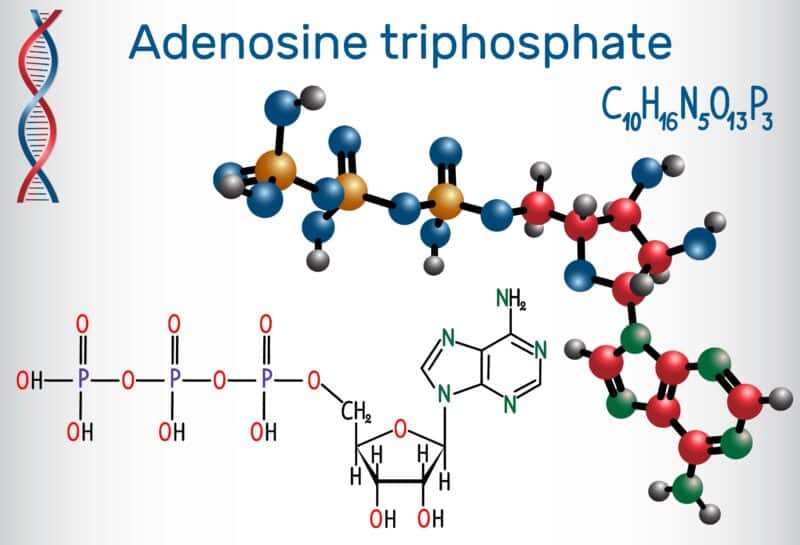
What is Creatine?
Creatine is a substance that is produced naturally in the body and is found primarily in red meat and seafood. Technically speaking, it is a naturally occurring non-protein amino acid compound. Within the body, approximately 5% is found in the brain, kidneys, and liver. The remaining 95% (120-140g) is stored in the skeletal muscle, where it forms a high-energy molecule known as phosphocreatine. Approximately two thirds of intramuscular creatine is phosphocreatine (PCr) with the remaining being free creatine.
It is the breakdown of phosphocreatine which produces ATP (adenosine triphosphate) to fuel the muscles during heavy lifting and high intensity exercise. ATP is depleted rapidly during strenuous activity. Therefore, using a creatine supplement to increase our stores of phosphocreatine helps the body to produce greater amounts of ATP. This enables our muscles to resist fatigue and maintain a higher level of performance for longer during intense exercise.
The total creatine pool (PCr + Cr) in the muscle averages about 120mmol/kg of dry muscle mass for a 70kg individual. However, the upper limit of creatine storage appears to be about 160mmol/kg of dry muscle mass in most individuals.
About 1–2% of intramuscular creatine is degraded into a metabolic by-product known as creatinine and excreted in the urine. Consequently, the body needs to replenish about 1–3g of creatine per day to maintain normal (un-supplemented) stores depending on muscle mass.
About half of the daily need for creatine is obtained from the diet. For example, a pound of uncooked beef and salmon provides about 1–2 g of creatine. The remaining amount is synthesized primarily in the liver and kidneys from the amino acids arginine and glycine.
Why Do I Need to Supplement Creatine if it’s Contained in the Diet and the Body Can Produce it?
In a normal diet that contains 1–2g/day of creatine, our muscle stores are only approximately 60–80% saturated. However, to maximise the benefits we need to optimise our stores. To this end, supplementing with creatine serves to increase muscle creatine and PCr by 20–40% (28).
Once muscle creatine stores are fully saturated, they can generally be maintained by ingesting 3–5g/day, although larger athletes may need to ingest as much as 5–10g/day in order to maintain stores, which is greater than the amount you are likely to consume, or your body is able to produce.
In addition, if you are a vegan or vegetarian you are likely to gain even greater benefit from creatine supplementation. As the richest natural sources are red meat and fish, those eating a plant-based diet tend to have reduced levels. However, when their diet is supplemented with creatine, they retain greater amounts than those consuming meat and fish.
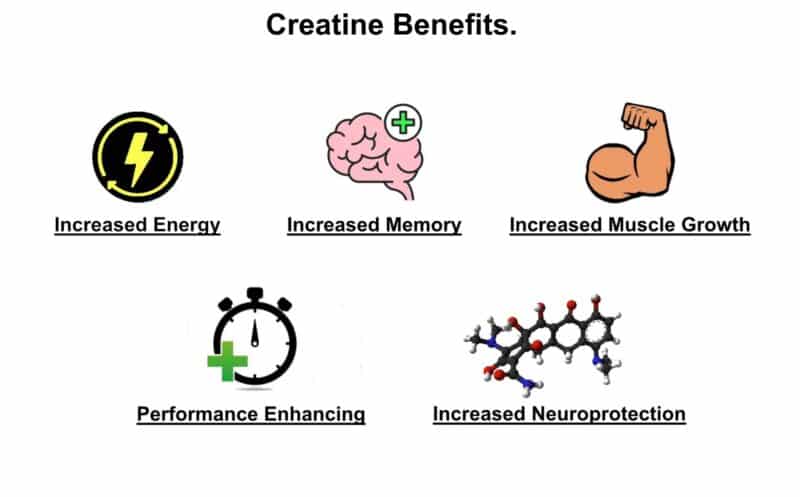
Does Creatine Increase Muscular Size and Strength?
Perhaps the main reason people supplement with creatine is to increase muscle size and strength. This is with good reason as numerous studies (1, 2, 3, 4, 15, 16, 17, 28, 31) have shown it to be effective for increasing muscle size and strength when combined with resistance training.
Becque and colleagues (2) investigated the effects of 6 weeks of oral creatine supplementation on muscle size, strength, and body composition. Twenty-three male participants with at least 1 year of weight training experience were assigned to either a placebo or creatine group. 1RM (1 rep max) strength of the arm flexors, body composition, and anthropometric upper arm muscle area were measured before and after a 6 week resistance training program. The results showed that creatine supplementation during arm flexor strength training led to greater increases in arm flexor muscular strength, upper arm muscle area, and fat-free mass than strength training alone.
A review Kreider (3) on the effects of creatine on performance and training adaptations showed that short-term creatine supplementation has been reported to improve maximal power/strength (5-15%) and work performed during sets of maximal effort muscle contractions (5-15%). Moreover, creatine supplementation during training has been reported to promote significantly greater gains in strength, fat free mass, and the performance primarily of high intensity exercise.
A review by Rawson and Volek (15) evaluated the effects of creatine supplementation on muscle strength and weightlifting performance. Of the 22 studies reviewed, the average increase in muscle strength following creatine supplementation plus resistance training was 8% greater than the average increase in muscle strength following placebo ingestion during resistance training (20 vs. 12%). Similarly, the average increase in weightlifting performance (maximal repetitions at a given percent of maximal strength) following creatine supplementation was 14% greater than the average increase in weightlifting performance following a placebo (26 vs. 12%). The increase in bench press 1RM ranged from 3-45%, and the improvement in weightlifting performance in the bench press ranged from 16-43%. The authors concluded there is substantial evidence to indicate that creatine supplementation during resistance training is more effective at increasing muscle strength and weightlifting performance than resistance training alone, although the response is highly variable, as demonstrated by the increase in 1RM bench press of 3-45%.
How Long Does Creatine Take to Work?
The results of a double blind randomised control trial by Volek and colleagues (4) showed that just 5 days supplementation with creatine supplementation resulted in a significant improvement in peak power output during 5 sets of jump squats and a significant improvement in repetitions during 5 sets of bench press. A significant increase in body mass of 1.4 kg (range = 0.0-2.7 kg) was also observed after creatine ingestion.
Similar results were observed by Kilduff and colleagues (16), who found that just five days of creatine supplementation increased body weight and fat-free body mass in resistance-trained men. Peak force and total force during a repeated maximal isometric bench-press test were also significantly greater compared to the placebo group.
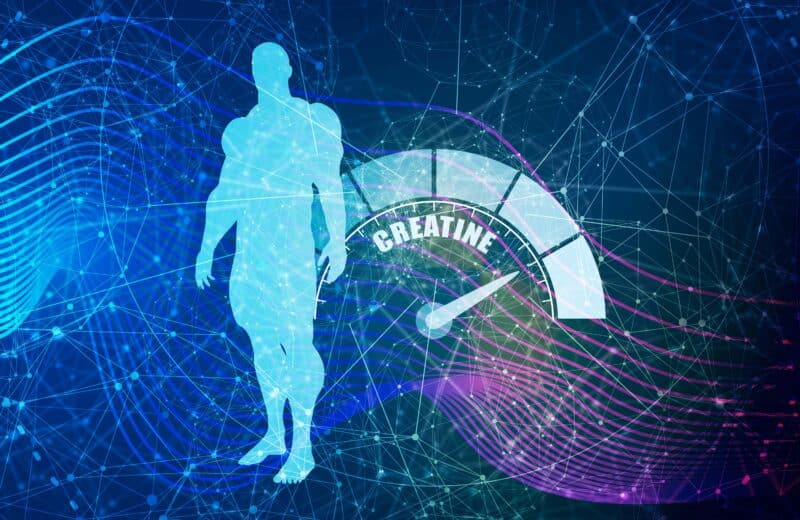
How Does Creatine Increase Muscle Size?
A review by Farshidfar (18) set out to answer this question and found that a number of mechanisms have been proposed to explain how creatine increases muscle size and strength.
Early research suggested that the osmotic effect of creatine supplementation, which causes it to store water in the tissues of the body, particularly muscle, serves as a cellular stressor that acts as an anabolic stimulus for protein synthesis. It is this increase in water that accounts for the rapid increase in bodyweight experienced when first taking creatine.
Other reports indicated that creatine directly affects muscle protein synthesis via modulations of components in the mammalian target of rapamycin (mTOR) pathway. Target of rapamycin (TOR) is an enzyme that controls cell growth and metabolism in response to nutrients, growth factors, cellular energy, and stress (exercise).
Creatine may also directly affect the formation of muscle tissue by altering secretions of myokines, special proteins released by muscle fibres, such as myostatin and insulin-like growth factor-1. Myostatin is a growth factor that regulates the size of muscles. It acts by inhibiting the growth of muscles to prevent them from growing too large. IGF1, also called somatomedin C, is a hormone similar to insulin, which plays an important role in childhood growth, and has an anabolic effect in adults. Other factors resulting in the increase in muscle cell number and growth may also be involved.
The authors concluded that overall, there is still no clear understanding of the mechanisms of action regarding how creatine affects muscle growth, rather, current evidence suggests it may exert its effects through multiple approaches.
Does Creatine Speed Up Post-Exercise Recovery?
The importance of recovery after exercise is summed by the old saying: “You can only train as hard as you can rest.” The sooner and more effectively we recover, the more we can train and the more productive are workouts can become. As we age, we tend to recover more slowly, which impacts on how often and how hard we can train. So, anything we can do to enhance our recovery is worthy of investigation. The science shows us that creatine supplementation can aid the recovery process in a number of ways:
For example, exercise-induced muscle damage (EIMD) causes increased soreness, impaired function of muscles, and reductions in muscle force. The results of a review by Wax et al., (19) showed that creatine supplementation may speed up recovery time between bouts of intense exercise by reducing the severity of muscle damage and promoting the faster recovery of lost force-production potential.
After reviewing 9 studies relating to creatine and post exercise recovery, Jiaming and Rahimi (20) concluded that creatine consumption is better than rest after different forms of damaging and exhaustive exercise or passive recovery. Specifically, the data showed that creatine significantly reduced creatine kinase (an indicator of muscle damage) concentration overall and at three follow-up times (48, 72, and 96 hours) in comparison with a placebo. The benefits relate to a decrease in muscle damage indicates improved muscle function because of muscle power loss after exercise. The authors suggest that creatine supplementation would be effective in reducing the immediate muscle damage that happens <24, 24, 48, 72, and 96 hours post-exercise.
In addition to aiding recovery by reducing the effects of exercise induced muscle damage, creatine has also been shown to enhance glycogen synthesis, the process of storing glucose in the body in the form of glycogen to provide a readily available source of energy for exercise (1). There is also strong evidence that creatine supplementation can help reduce inflammation following intense exercise and enhance toleration of high volumes of training and/or overreaching to a greater degree thereby promoting recovery.
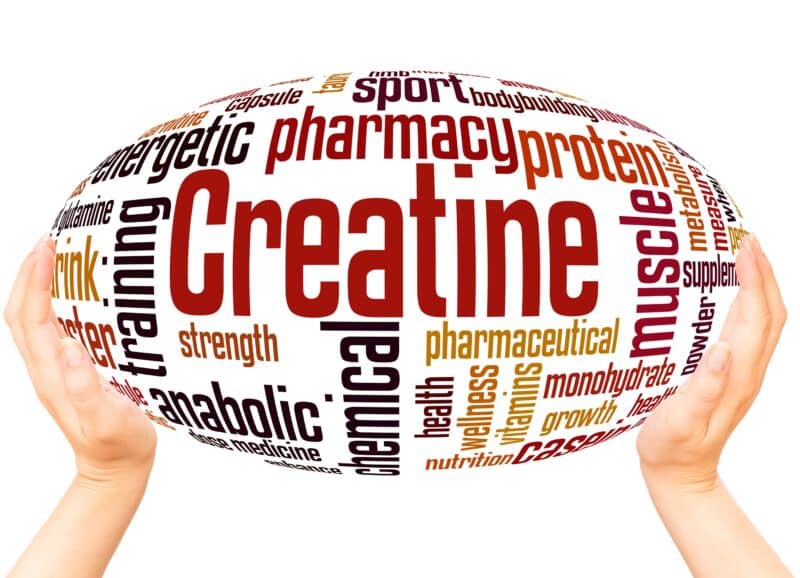
Does Creatine Increase Sports Performance?
There is a tendency to associate creatine supplementation with strength and power athletes and those wishing to maximise their muscle mass, as it has been shown to enhance maximal strength (low-speed strength), maximal work output, power production (high-speed strength), sprint performance, and fat-free mass (19).
There are also a considerable number of studies that demonstrate creatine’s ability to enhance performance in a variety of sports and activities, particularly those that involve short bursts of maximum intensity activity and recovery.
A review by Krieder (3) showed that creatine supplementation can improve single-effort sprint performance by up to 5% and repetitive sprint performance (5-15%).
Other studies have reported similar results. For example, Jones et al. (8) found that creatine supplementation improved average and peak power during sprints and faster sprint times in ice hockey players in comparison to a placebo.
The results of a study by Smith and colleagues (9) showed that 5 days of creatine loading in women helped to delay the onset of neuromuscular fatigue during 60 second work bouts of cycle ergometry by 14.5% in comparison to a placebo.
A review by Hall et al., (21) highlighted a number of sports which have demonstrated improvements in performance with creatine use. These include track and field events involving sprinting, jumping and throwing. Similar performance benefits have been observed in short distance swimming. With regard to cycling it appears to enhance power in intermittent, high-intensity performance, where bursts of acceleration are often seen, as in the closing sprints of cycling races.
Creatine supplementation has also been shown to have beneficial effects on soccer performance. These include enhanced muscle power output, and improvements in jumping and sprinting. Other benefits of creatine supplementation in soccer relate to improvements seen in post-match recovery due to creatine phosphate breakdown and glycolysis observed after play.
As a general guide, after creatine loading, performance of high intensity and/or repetitive exercise is increased by 10–20% depending on the magnitude of increase in muscle phosphocreatine stores (3)
Does Creatine Enhance Physical Performance?
There is a great deal of evidence in the literature suggesting that creatine has the most pronounced effect on short duration (<30 s), high-intensity, intermittent anaerobic exercise (28).
But how does it achieve this?
As we have already seen, creatine supplementation increases intramuscular availability of phosphocreatine for rapid generation of ATP via the anaerobic phosphocreatine energy system. Increased phosphocreatine stores also are thought to enhance the recovery process during short periods of rest, thereby reducing muscle fatigue. In addition, it also reduces the acidosis effects on muscles from pH changes that normally occur in anaerobic glycolysis, which can contribute to fatigue during intense exercise. It does this by shifting some of the energy production requirements to the phosphocreatine system (28).

Does Creatine supplementation Speed Up Recovery From Injury?
As creatine supplementation has been shown to promote gains in muscle mass and strength, a number of studies have examined the effects on muscle atrophy and the resulting loss of strength associated with limb immobilisation and/or during rehabilitation (1).
For example, Hespel et al., (22) examined the effects of creatine supplementation on atrophy rates and rehabilitation outcomes in individuals who had their leg in a cast for 2 weeks. During the 10 week rehabilitation phase, participants performed three sessions a week of knee extension rehabilitation. The results showed that individuals in the creatine group experienced greater changes in the cross-sectional area of muscle fibre (+10%) and peak strength (+25%) during the rehabilitation period in comparison to a placebo.
A study by Op’t Eijnde et al., (23) reported that creatine supplementation offset the decline in muscle GLUT4 protein content that occurs during immobilisation and increased GLUT4 protein content during subsequent rehabilitation training in healthy subjects. Immobilisation decreased GLUT4 in the placebo group by approximately 20%, but the creatine group it increased by +9%. Glycogen and total creatine were unchanged in both groups during the immobilisation period. In the placebo group, during training, GLUT4 was normalised, and glycogen and total creatine were stable. Conversely, in the creatine group, GLUT4 increased by approximately 40% during rehabilitation. GLUT4 is the glucose transporter found in skeletal and cardiac muscle cells, and fat cells, where it is responsible primarily for insulin-stimulated glucose uptake.
The findings of these studies suggest that creatine supplementation can reduce the amount of muscle atrophy and the detrimental effects on muscle associated with immobilisation while promoting greater gains in strength during rehabilitation.
Does Creatine Supplementation Help to Prevent Injury?
In addition to helping to reduce the muscle atrophy and loss of strength due to immobilisation, there is also evidence to suggest that creatine supplementation may help to reduce the risk of injury.
For example, Greenwood and colleagues (24) investigated the effects of creatine supplementation on the incidence of injury observed during 3-years of NCAA Division IA college football training and competition. Subjects taking creatine were administered 15.75 g of creatine for 5 days followed by ingesting an average of 5 g/day thereafter administered in 5-10g doses. The results showed that they experienced significantly lower incidence of muscle cramping, heat illness/dehydration, muscle tightness, muscle strains, and total injuries compared to athletes who did not supplement their diet with creatine.
Does Creatine Supplementation Increase Tolerance to Exercise in the Heat?
It is well acknowledged that like carbohydrate, creatine has osmotic properties that help retain a small amount of water within the body. For example, initial studies reported that creatine loading promoted short-term fluid retention of approximately 0.5 – 1.0L, which was generally proportional to the acute weight gain observed (1).
As a result of this, there has been interest in determining if creatine supplementation may help hyper-hydrate an athlete and so improve tolerance to exercising in the heat. For example, Kilduff et al., (25) evaluated the effects of creatine supplementation (20g/day for 7 days) prior to performing exercise to exhaustion at 63% of peak oxygen uptake in the heat (30.3°C). The results showed that creatine supplementation increased intracellular water and reduced thermoregulatory and cardiovascular responses to prolonged exercise, which included heart rate, rectal temperature, sweat rate. Thereby promoting hyper-hydration and a more efficient thermoregulatory response during prolonged exercise in the heat. In addition, time to exhaustion was increased significantly in subjects whose estimated intramuscular Cr levels were substantially increased (“responders”: 47.3 +/- 4.9 min vs. 51.7 +/- 7.4 min)
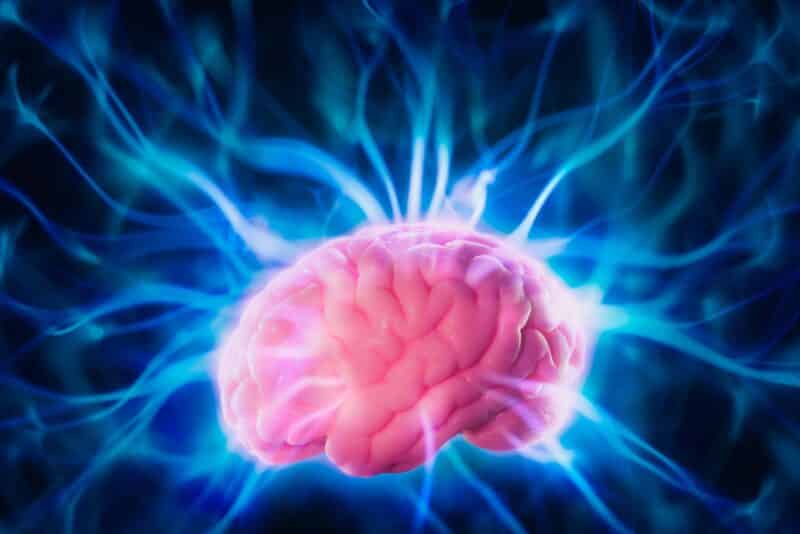
Does Creatine Supplementation Enhance Cognitive Function?
The majority of attention from both athletes and scientists has been on the effects of creatine on physical performance. However, there is an increasing body of evidence demonstrating it’s nootropic effects. Nootropics as sometimes referred to as ‘smart drugs’ or ‘cognitive enhancers’; these are medications, supplements, and other substances that are used to improve cognitive ability, particularly memory, attention, creativity, learning and intelligence.
The results of a review by Avgerinos and colleagues (26) showed that creatine administration may improve short-term memory and intelligence/reasoning.
Prokopidis et al., (27) conducted a systematic review and meta-analysis of randomised controlled trials (RCTs) to determine the effects of creatine supplementation on memory. The results showed that overall, creatine supplementation improved measures of memory compared with a placebo. Further analyses revealed a significant improvement in memory in older adults (66-76 years) compared to their younger counterparts (11-31 years).
When used in athletes, dietary supplementation of creatine has been suggested to improve cognitive performance, alleviate mental fatigue, attenuate effects of sleep deprivation, and improve memory (28).
How Does Creatine Supplementation Improve Cognition?
The precise mechanisms responsible for creatine’s effects on cognition are unclear. However, it is clear, that it is an essential compound for the brain (28). From an energy perspective, the brain is very metabolically demanding and it is well documented that creatine plays a key role in brain bioenergetics. There is some evidence that creatine supplementation can augment brain creatine stores, which could improve memory and cognition (27). It may also provide a neuroprotective effect (28); i.e., inhibit the processes involved in the dysfunction and death of neurons or nerve cells, which are the fundamental units of the brain and nervous system.
Does Creatine Slow Down Aging?
Numerous ways in which creatine supplementation can benefit us as we age have been identified. These include helping to lower cholesterol and triglyceride levels, reducing fat accumulation in the liver, reducing homocysteine levels (elevated levels increase the risk of dementia, heart disease and stroke), serving as an antioxidant, enhancing glycaemic control, slowing tumour growth in some types of cancers, increasing strength and muscle mass, minimising bone loss, improving functional capacity in individuals with knee osteoarthritis and fibromyalgia, improving cognitive function, and in some instances, serving as an anti-depressant (1).
Is Creatine Safe?
Since creatine first became popular as a supplement 30 years ago, some concern has been raised regarding its safety. The International Society of Sports Nutrition (ISSN) (1) conducted an extensive review of the science relating to this issue. It concluded that unsubstantiated anecdotal claims described in the popular media, as well as rare case reports described in the literature without rigorous, systematic assessments, have been refuted in numerous well-controlled clinical studies showing that creatine supplementation does not increase the incidence of musculoskeletal injuries, dehydration, muscle cramping, or gastrointestinal upset. Nor has the literature provided any support that it is associated with kidney dysfunction, or has long-term detrimental effects. Rather, as we have seen, creatine supplementation has been found to reduce the incidence of many of these anecdotally reported side effects.
Available short and long-term studies in healthy and diseased populations, from infants to the elderly, at dosages ranging from 0.3 to 0.8 g/kg/day for up to 5 years have consistently shown that creatine supplementation poses no adverse health risks (1).
For example, Almeida et al., (29) conducted double-blind placebo-controlled study to evaluate the effect of creatine monohydrate supplementation on a panel of blood and urine health indicators in resistance training participants. Eighteen males performing resistance training three times per week were supplemented with 0.3 g/kg per day creatine monohydrate for 7 days and compared with matched controls supplemented with a placebo. The results showed that creatine supplementation did not cause any adverse events. No modification of red blood cells parameters, white blood cells profile, blood lipid profile, metabolic and urine markers, hepatic and renal function were observed in the supplemented group. The authors did note an increase in performance and body weight, which was to be expected, as it concurs with the results of numerous other studies.
The ISSN (1) suggest that the label advisories on creatine products that caution against its use by those under 18 years old, are likely intended to protect the manufacturers from legal liability, as they are unnecessary given the science supporting creatine’s safety, including in children and adolescents.
It seems that the overwhelming consensus of science opinion is that creatine supplementation is not only an effective ergogenic aid, but is also safe.

Not All Creatine is Created Equal
Although creatine has been shown to be safe in numerous studies, it is important to note that not all of the creatine on the market is of the optimal quality. This can not only reduce its effectiveness, but can also pose a health risk. Therefore, you are advised to only purchase the product from a reputable supplier who is able to provide a specification sheet which includes the following information:
- Assay should be at least 95% creatine (Time 4 Creatine is 99.9% pure creatine)
- Appearance should be white to pale cream
- Moisture content should be less than or equal to 12.5%
- Residue on ignition should be less than or equal to 1%
- Should be negative for E.Coli, Salmonella, and Staphylococcus aureus
- Lead and mercury should be less than 10ppm
- Arsenic should be less than 3ppm
- Dicyandiamide should be less than 30ppm
Does Creatine Cause Hair Loss?
There has been some concern expressed in the media recently, particularly social media, that creatine may cause hair loss.
It appears that the majority of speculation regarding the relationship between creatine supplementation and hair loss comes from a single study by van der Merwe and colleagues (30).
This involved 20 college-aged male rugby players who supplemented with 25g of creatine per day for 7 days, followed by 5g per day for an additional 14 days. The subjects experienced a 56% increase in serum dihydrotestosterone (DHT) after the seven-day loading period. This remained 40% above baseline values after the 14 day maintenance period.
The reason that this result raised concerns regarding potential hair loss is that DHT, a metabolite of testosterone, has been linked to some occurrences of hair loss. In males, DHT can bind to androgen receptors in susceptible hair follicles and cause them to shrink, ultimately leading to hair loss (31).
It is important to note that the purpose of the study by Merwe to investigate the effects of creatine on resting concentrations of selected androgens (male sex hormones), not to investigate the effects of creatine on hair loss, and no mention of hair is made in the study.
In a comprehensive review of the literature on creatine and hair loss, Antonio et al., (31) note that the results of van der Merwe et al. have not been replicated in other studies, and that intense resistance training alone can cause increases in androgenic hormones. In conclusion, the current body of scientific evidence does not show that creatine supplementation may cause hair loss.
To learn more about creatine and hair, click here:
Time 4 Creatine Blend
While the vast majority of research has focused on the supplementation of creatine monohydrate, there are other forms which provide their own benefits and work synergistically. These are creatine ethyl ester, creatine gluconate, and creatine nitrate. They, along with creatine monohydrate can all be found in Time 4 Creatine Blend. To learn more, just click here:
In conclusion….
The International Society of Sports Nutrition (1) position stand states that creatine is the most effective ergogenic nutritional supplement currently available for athletes wishing to increase high-intensity exercise capacity and lean body mass. It is also one of the world’s most tested supplements and has an outstanding safety profile.
Recently, the American Dietetic Association, Dietitians of Canada, and the American College of Sports Medicine have all came to similar conclusions (32). Therefore, there is now wide-spread consensus in the scientific community that creatine supplementation can serve as a safe and effective ergogenic aid that may benefit athletes involved in numerous sports as well as individuals involved in general fitness training. It has also been reported to have a wide variety of therapeutic benefits for a diverse range of people, from infants to the elderly (1).
However, although it is regarded as safe, it is important to note that not all creatine is created equal, which can have implications for both its ergogenic efficacy and safety, but you can rest assured that Time 4 Creatine is 100% pure premium grade creatine monohydrate. In light of the vast amounts of scientific evidence highlighting it’s many benefits for health and performance, its endorsement by some of the world’s leading authorities in sports nutrition, and its excellent safety profile, perhaps the question you need to ask is not should I supplement with creatine, but why aren’t I supplementing with creatine?
